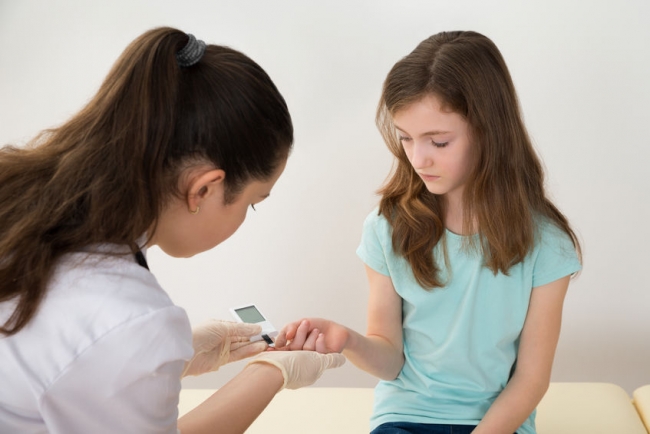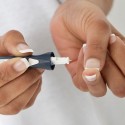There are number of people with type II diabetes and the numbers are growing faster. Type II diabetes has severe complications including stroke, heart attacks, blindness and amputations. Earlier diagnose may provide an opportunity for a physician to prevent an individual from disease sequelae by implementing the possible pharmalogical intervention or some lifestyle changes.
There are some risk factors which can increase the chances of developing diabetes in an individual. Like, if you have a positive family history of diabetes in either or both the parents, your risk is increased. Other factors increasing the risk of diabetes are smoking and obesity. Also, certain ethnic groups like Non-hispanic blacks, Asian Americans, Native Americans and African Americans have higher predilection for having diabetes.

Canagliflozin is a drug of the class gliflozin, used for the treatment of type II diabetes. The scientific name of Canagliflozin drug is (1S)-1,5-Anhydro-1-C-[3-[[5-(4-fluorophenyl)-2-thienyl]methyl]-4-methylphenyl]-D-glucitol and the molecular formula is C24H25FO5S. There are various suppliers of Canagliflozin in India that also offer its intermediates with quality support technical package required for evaluation.
People diagnosed with impaired fasting blood glucose levels, high blood pressure or heart disease or those who’ve had prolonged steroid use have much higher risks of developing diabetes. Women who’ve had a child greater than nine pounds, gestational diabetes or diagnosed with polycystic ovarian disease should definitely be tested. There are also some signs and symptoms that may suggest diabetes. These signs include increased appetite, excessive thirst, increased urination, headaches, blurred vision, numbness, fatigue, tingling and weight loss.
Who all and how often someone should be tested for diabetes screening is still controversial but the current guidelines suggest testing at the age of 40-45 and depend largely on the basis of additional health factors for earlier screening. If you suffer from any of the factors stated above, consult your physician and ask him for screening. While screening for diabetes, you can expect a simple blood test carried out when fasting. Some physicians might choose to do a glycosylated hemoglobin level that checks your glucose levels within some last 2-3 months to determine since when you’re having diabetes.
If you’re diagnosed with pre-diabetes, your doctor may encourage you to embrace certain lifestyle changes like walking or other physical activities and if possible lose weight. Other changes might include well-balanced diet which is rich in minerals, vitamins and fiber which is low in fat and cholesterol. If you’re diagnosed with diabetes, your doctor may encourage you to pursue these lifestyle changes prior to any medication and that depends on how elevated are your blood glucose levels. If the doctor suggests medication on a primary level, it helps in decreasing blood sugar levels, fight against heart disease and also helps with weight-loss.
Unfortunately, diabetes is a life-changing disease which requires diligence. Having friends and family members who are much aware about the disease and who participate in your care can provide much ease and comfort in fighting with this disease.
Though there is more research required in diabetes screening to formulate more and better guidelines. However, the adults should consult and discuss with their physician to determine the usefulness of testing for diabetes based upon their individual risk factors.

